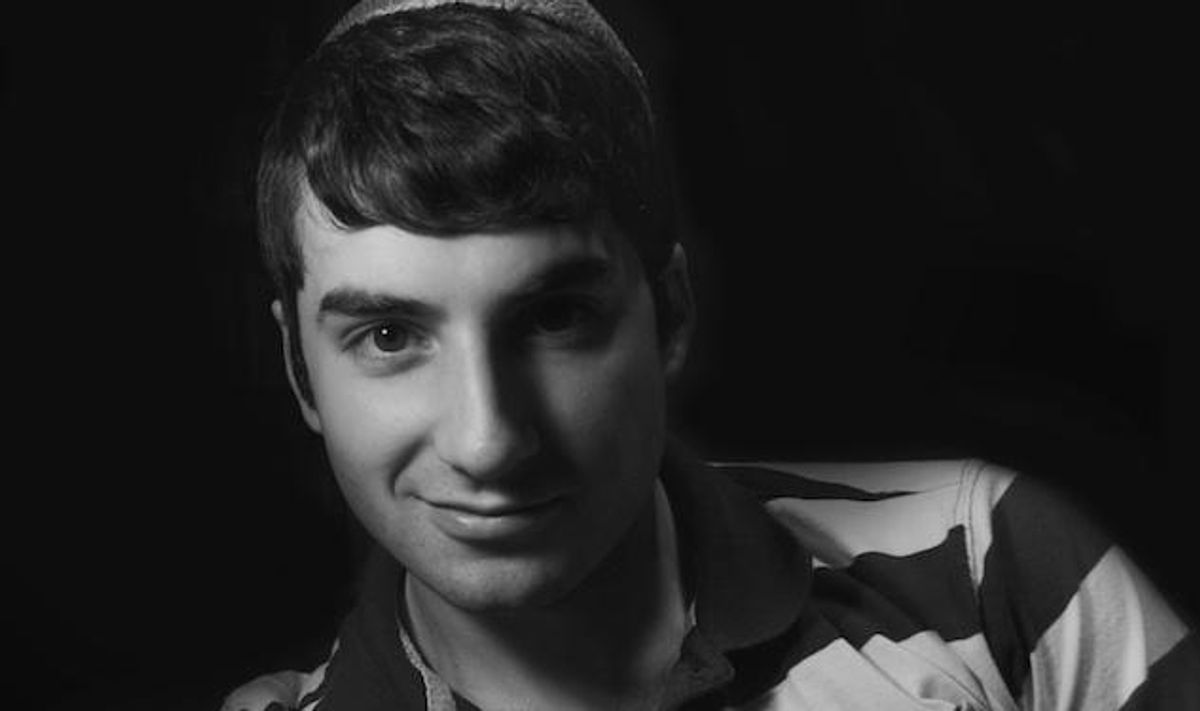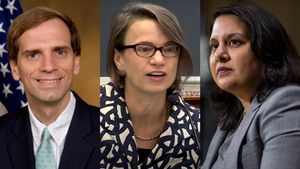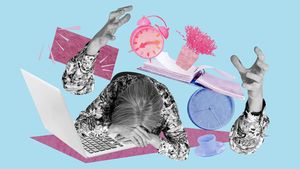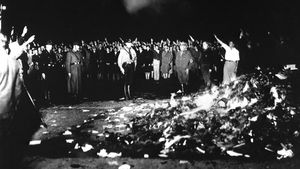"What's the point?" a date asked me over tea in late February of 2013. "You say you're Jewish, yet your school, your synagogue, and rabbis were homophobic. Why do you stay connected?"
I slid the sugar across the table, smiled crookedly, and said, "Well, I want acceptance. I want to be the cultural glue between one generation and the next. I want to live by example. I want to be meaningful, gay, and glad." His eyes went wide.
As we said goodbye, I thought about who I wanted to be. For years, I had been fighting with elements of my identity: Jewish, single, gay, middle-class, white, a twentysomething, New Yorker, writer, and son. Suddenly, it struck me that were I to say who I wanted to be, I first had to assess where I had come from.
All my life I had gone to Jewish schools, where I learned Jewish theory and practice from a Modern Orthodox perspective. And all my life, I had issues with trust because of it.
In the seventh grade, a rabbi told me not to consort with non-Jews. In that same year, I came out to my parents. A rabbi my parents asked to bless me whispered to me, "Marry a Jewish girl." Then my parents sent me to a conversion therapist to deal with my sexuality.
The therapist told me I had a choice whether to dismiss one aspect of my identity. I survived in high school by hiding and lying. I'd convinced myself I was bisexual. In school, I was told that sexual activity between men was as bad as not eating Kosher. I remember looking up the numerical value of my Hebrew name, which amounted to "prancing," "mistress," and "desire." By senior year, the specter of depression began eating my insides. I was so conflicted.
By March of 2009, I was 19, away at college, and hardly speaking to my parents. I would call home once a week to have perfunctory conversations with my mom. There was a time in high school when I yelled at my parents so the walls shook. Now, my father and I schmooze. I kvetch to my mother about anything. We share our secret jokes and ironies. A year ago, I was living in the East Village, 30 minutes from my parents' home. Three times a year for Jewish High Holidays--Pesach, Succoth, and Rosh Hashanah--I would visit, desperate for good food. Now, I am home every other weekend, for birthdays, Shabbat, for family.
Last Sunday, I found out my mother's great-great-grandfather was a rabbi in Minsk, Belarus. By coincidence, on both sides, I descend from a line of Levite Jews, known for creativity and expression.
For a long time, I saw being gay and being Jewish as mutually exclusive categories. They are not. The journey to acceptance starts from within. The more I accept the elements of my identity, the more my parents do, too.
After years of harboring a grudge, I started reading about Judaism, and the world has opened up to me. In one book, I learned that trust is the sense of security that comes from a sympathetic, reliable, and generous relationship. In another, I learned that a wealthy man is happy with what he has. In October of 2013, I joined a group for Jewish LGBT youth, and was able to meet others who went through similar crucibles.
When I reflect on the past, I see that every moment has made me who I am. Living by example changes the way everyone sees, including the way I see myself. Thankfully, after years of struggle, I can add another moniker to my list of identities: simply happy.
This holiday season, show us why #AcceptanceMatters. Tag your photos on Facebook, Twitter and/or Instagram using #AcceptanceMatters and you could win a $100 gift card from MasterCard. Learn more about the contest here: statigr.am/contest/pzmg/acceptancematters-photo-contest




















































































